DHDD Newsletter – August 2023
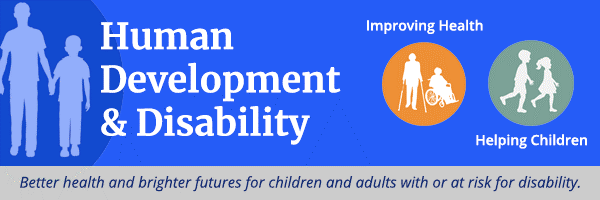
A Note from the DHDD Director
Dear DHDD Partners,
Even as the summer heat continues, August is a time of transition for many families and educators during the back-to-school season. In the midst of purchasing school supplies and shifting schedules, ensuring children are caught up on routine vaccinations is key to preparing them for a successful school year.

The latest CDC data show that 93% of kindergartners in the U.S. received their recommended routine vaccines. While the overwhelming majority of children are getting their vaccines, CDC data has also shown a 1% decline in vaccination coverage among children for the past two school years. This is concerning because children, including children with disabilities, who are not protected by vaccines are more likely to get diseases such as measles and whooping cough. Unfortunately, these are not diseases of the past _ in recent years, there have been outbreaks of measles in the U.S.
Too often, children with disabilities face challenges to participation in learning and social activities. We need to do all we can to support their participation in inclusive and equitable ways. Getting children with disabilities caught up on recommended vaccinations is an important way to protect them so that they can stay in school and continue to engage in fun activities with family and friends. CDC offers several resources to help promote and support routine vaccination for children:
- Let’s RISE initiative provides data about the state of routine vaccination and actionable strategies that health departments, healthcare providers, schools, and other partners can take.
- Let’s Catch Up campaign provides materials for schools and healthcare professionals to remind parents to make vaccination a part of preparing their children for the new school year.
- Childhood Vaccine Quiz gives parents a list of vaccines their child needs based on their responses.
Together, we can protect the health of children with disabilities and help them learn, grow, and thrive.
Sincerely,
Karyl
Karyl Rattay, MD, MS, FAAP
DHDD Director
In the Spotlight
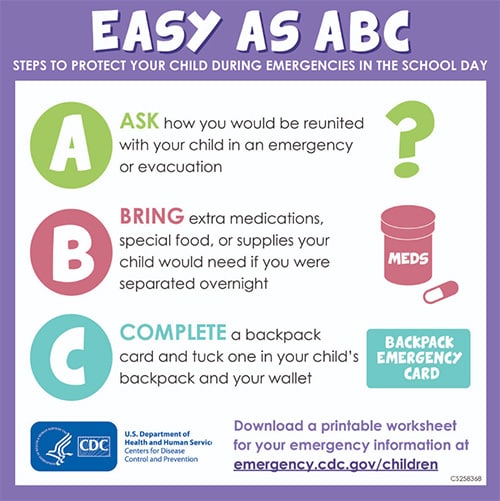
Help Protect Your Family During Emergencies
Our hearts are with the people of Maui who are recovering from the recent wildfires. As we enter into National Preparedness Month, please view CDC resources below and let’s take steps to protect our loved ones:
- National Preparedness Month 2023 includes a series of discussion-based activities to help health departments develop “whole community” plans for preparedness and response.
- Keeping Children Safe discusses 3 easy steps parents can take to help protect children during an emergency in the school day.
- Helping Teens Cope After a Natural Disaster provides information for parents and professionals working with teens.
- Educational materials by topic provide tips about how to prepare for and stay safe during and after a natural disaster.
- Educational materials by language provides materials in various languages, including American Sign Language,
- Ready Wrigley books and checklists offer engaging activities that help children understand the importance of emergency preparedness.
If you have children with special healthcare needs, emergency preparedness can take extra planning to ensure they have needed medicine and medical equipment. Don’t wait for an emergency to happen!
Tools and Resources
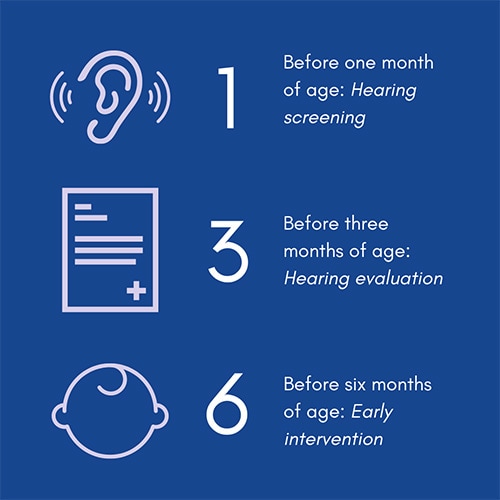
5 Things About Timely Hearing Screening, Diagnosis, and Intervention in Infants
A new commentary published in Medscape discusses the importance of Early Hearing Detection and Intervention (EHDI) 1-3-6 benchmarks and barriers to reporting and follow-up among healthcare providers. The article suggests strategies to increase the number of children with hearing loss identified early, based on interviews with 56 healthcare providers in Texas along the hearing care continuum.
Publications
Prenatal Ultrasounds Are Not Associated with Autism: Findings From CDC’s SEED Study
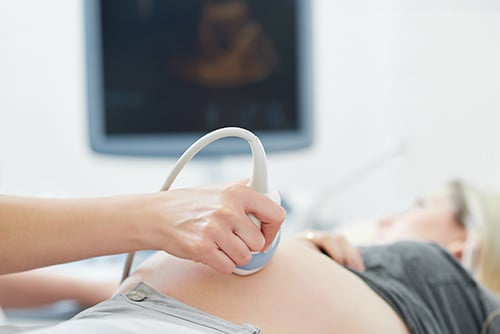
A study published in Paediatric and Perinatal Epidemiology found no evidence to suggest that prenatal ultrasound use is associated with an increased risk for autism spectrum disorder (ASD). Data from CDC’s Study to Explore Early Development, a multisite case-control study of children aged 2-5 years, was used to explore prenatal ultrasound use as a possible risk factor for ASD. Results from this analysis reaffirmed findings from previous studies of no association between prenatal ultrasound use and ASD for pregnancies with and without medical indications. This CDC study made unique contributions by using gold-standard assessments for ASD case classification, comparing cases and controls, and accounting for pre-existing medical conditions and pregnancy complications that are medical indications for increased ultrasound use and have also been associated with ASD in previous studies.
Inequities in COVID-19 Vaccination Coverage for Adolescents With and Without Disability
A CDC study published in the Disability and Health Journal used national survey data to describe COVID-19 vaccination status of adolescents and parental intent to vaccinate, among adolescents with and without disability. Adolescents with disability had lower vaccination coverage compared to adolescents without disability despite a higher reported intent to get their child vaccinated among parents of adolescents with disability. Findings highlight the need for focused outreach to increase COVID-19 vaccination for this population. This study also reflects CDC’s efforts to collect disability status and type in all public health data collection systems to address systemic inequities for this population.
Around CDC
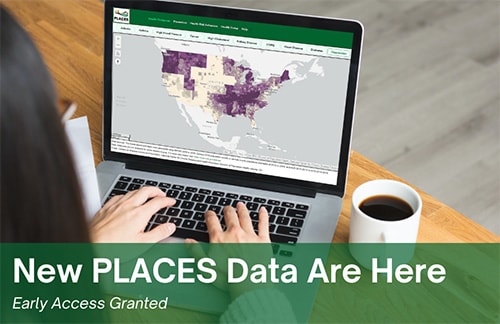
CDC’s PLACES Provides Local Data on Disability
CDC’s PLACES data now provides local-level disability estimates alongside other community health data. PLACES stands for Population Level Analysis and Community Estimates. The latest release includes new years of data across 36 health-related measures, including seven new disability measures, for every county, city, and census tract in the United States.
PLACES is a powerful tool for public officials, city and regional planners, nonprofits, advocates, or anyone else who wants to better inform their efforts to create healthier and more equitable communities. The interactive maps let you view and explore key health-related measures, community by community. This allows local officials to gain an additional perspective on how specific areas fare on measures such as depression, disability status and disability by type, asthma, poor mental health, sleep, cholesterol screening, and other conditions, behaviors, and risk factors that have a substantial impact on population health.
Partner News and Announcements
The Positive Impact of the MENTOR Program
The National Center on Health, Physical Activity and Disability’s (NCHPAD) CDC-funded MENTOR program, which stands for Mindfulness, Exercise and Nutrition to Optimize Recovery, takes a holistic approach to restoring, improving, and protecting health. MENTOR focuses on individuals who have acquired a new disability (spinal cord injury, stroke, traumatic brain injury), diagnosis (multiple sclerosis, Parkinson’s disease) or have a congenital condition (cerebral palsy, spina bifida). Through this program, individuals learn the multiple ways life can be enhanced through the portal of health and wellness.
In a new video resource from NCHPAD, Quatrina Thurmon, a MENTOR program participant, shares how the program has improved her focus on her own well-being.
Check out Quatrina’s story on YouTube
Guide Provides Partnership Best Practices for Disability Organizations and Health Departments
The CDC Foundation has released a Partnership Guide for Centers for Independent Living and State and Local Health Departments. This publication is designed to help disability-led organizations and health departments understand each other’s structures and goals while providing tips and best practices for creating strong partnerships to better serve the needs of people with disabilities. The CDC Foundation produced the guide in partnership with the Centers for Independent Living and the National Association of County and City Health Officials.
Download the partnership guide.
TAA Announces Project Director Opening for CDC Cooperative Agreement
The Tourette Association of America (TAA) is seeking a project director to lead education programs for medical professionals and the community as part of its cooperative agreement with CDC. This position can work out of TAA’s Bayside, NY office or in a remote capacity.

